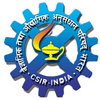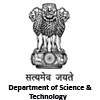|
|
 |
 |
 |
 |
||
CSIR-CIMAP salient achievements towards societal activities:
1. Catalyzing transformation of India from a menthol importing country to the largest producer and exporter of menthol mint oil globally by developing short-duration and high-yielding varieties, and superior agro- and processing- technologies of menthol leading to the spread of Mentha cultivation in more than 300,000 hectares and enhancing the income of nearly 600,000 farming families.
2. Ensured "Making in India" of the anti-malarial drug artemisinin by developing high-yielding varieties of Artemisia annua, chemical process for extraction and derivatization of artemisinin, and promoting the cultivation of improved varieties in farmers' field.
3. Profitable utilization of salt-affected and flood-prone coastal and river bank areas by developing and deploying short-duration and high-yielding varieties of Vetiver (Khus).
4. Promotion of lemongrass and palmarosa cultivation in under-utilized rain-deficit areas like Bundelkhand, Vidharbha, Kutch and Marathwada.
5. Developed one of the most successful herbal formulations for the management of diabetes type II (with NBRI) using medicinal plants used in Ayurveda ensuring clinical efficacy and safety.
6. Leading CSIR Aroma Mission to empower Indian farmer and aroma industry by cultivation, processing, value addition and marketing of aromatic crops.
Reaching CSIR-CIMAP |
|
BY AIR - Lucknow is connected by daily flight from major towns and cities of India. BY RAIL - Some well-known trains - Shatabdi and Gomti Express (New Delhi to Lucknow),Neelachal Express (New Delhi to Puri), Vaishali Express (New Delhi to Barauni), Lucknow Mail (New Delhi to Lucknow), Sabarmati Express (Ahmedabad to Varanasi), and Avadh Assam Express (Guwahati to New Delhi)- connect Lucknow to the rest of India. BY ROAD - Lucknow is also well connected to other cities of the country by road. The distances to some nearby cities of tourist attraction are as follows: Delhi, 499 km; Jhansi, 340 km; Agra 400 km, Srinagar, 1394 km; Khajuraho 400 km ; Varanasi, 319 km, Ayodhya 140 km.AC buses, taxis, tongas, cycle rickshaws are available throughout the city. Charges vary according to the distance. |
| Google MAP |
|
|
| CSIR-CIMAP Research Centre Hyderabad | |
|
The Hyderabad Research Centre was established in July 1982 on 12-hectare area as the regional node of Central Institute of Medicinal and Aromatic Plants (CIMAP), Lucknow for showcasing and promoting CIMAP's green technologies in Deccan Plateau. The Centre has been in the forefront in developing farmer- friendly, sustainable, production-distillation technologies and high yielding varieties of economically important medicinal and aromatic plants (MAPs) with export potential under resource constraint conditions for transforming wastelands and drylands into eco- friendly, profitable green herbal farms. The Centre introduced and acclimatized number of MAPs in semi- arid tropics of Deccan Plateau and promoted large-scale cultivation through bio-village mission mode approach. The Centre is disseminating CIMAP's technologies through awareness camps, training programmes, exhibitions, media broadcasts and reports. The Centre is involved in ex situ conservation of rare, endangered, endemic MAPs of Eastern Ghats; is maintaining germplasm of Chlorophytum, Ocimum, Mucuna, Clitorin etc. and is supplying planting material of CIMAP's cultivars to farmers and industry. The Centre has 2- hectare organic plot for demonstration. The Centre has developed agro-technologies under irrigated and rainfed conditions for aromatic grasses, rose-scented geranium, menthol mint, lemon-scented gum, basils, jamrosa, davana and medicinal crops like winter cherry, Chlorophytum, periwinkle, king of bitters, ambrette and itching bean. Among these, king of bitters, periwinkle, winter cherry, palmarosa, lemon-scented gum and lemongrass are amenable for rainfed cultivation. Winter cherry cv. Poshita; lemongrass cvs. Cauvery, Krishna; menthol mint cv. Kosi; periwinkle tetraploids and sacred basil cv. Kanchan produced maximum yields and are recommended for cultivation. Rose-scented geranium cv. Bourbon is recommended for its excellent oil quality. Menthol mint cultivated in north India produced high biomass and essential oil yields affording 7 harvests and performed well when planted during different seasons or co- cropped with rose- scented geranium, opening opportunities for extending cultivation to south India. With the exception of winter cherry (sown by broadcasting seeds), all other crops are seeded or planted in rows. Crop specific spacing needs were worked out and transferred to farmers. Pairing or tripling of rows without affecting yield is feasible in palmarosa. Supplemental irrigation given to palmarosa during critical stages increased biomass and essential oil yields. Uncontrolled weed growth reduced biomass and essential oil yields of citronella and rose-scented geranium. In addition to manual weeding, intercropping, mulching and herbicides application controlled weed growth. The Centre has demonstrated the beneficial influence of organic sources of nutrients such as farmyard manure, vermicompost, VAM fungi in ambrette, itching bean, davana, rose-scented geranium, kalmegh, jamrosa, palmarosa and periwinkle. VAM fungi association has been found in many of these crops. The Centre has further confirmed that judicious use of chemical fertilizers and plant growth regula (PGRs) produce economic returns. Research revee that nitrogen application significantly increased nutri uptake, biomass and essential oil yields in davana i 100kg N), rose-scented geranium (100-150kg jamrosa (120kg N), palmarosa (80-160kg N), ment mint (120kg N), lemongrass (80-120kg N) and periwiri (40-100kg N). Irrigated crops responded to highei levels. Residual effect of N was absent. Nitrificati inhibitors (neem cake/oil) improved yields and recovery in rose-scented geranium (15-17% oil yield) a lemongrass (34-38% oil yield). Davana (26kg lemongrass (39kg P) jamrosa (60kg P2Os) and mentl mint (40kg P2Os) responded to P fertilizer additic Significant biomass and essential oil yield enhancemei were recorded with K fertilizer application in lemongn (75kg K) and palmarosa (42kg K). Split application oi and K was found to be more beneficial for lemongra: In all these experiments, fertilizer application did n affect the essential oil quality and all the aromatic cro produced good quality oils. Aromatic grasses a susceptible to iron deficiency during rainy season ar need ameliorative measures such as spraying iron salt Oil content and quality were influenced by iron chlorosi In winter cherry, seed treatment with N salts improve germination, seedling growth and root yield. PGRs (IBA, IAA, Cycocel, Biozyme, Triacontanol, Miztalol etc.). secondary (S.Mg) and micronutrients segmented yields in ambrette, rose-scented geranium, jamrosa, lemongrass and palmarosa. IBA (2000ppm quick dip method) and Triacontanol induced rooting in rose-scented geranium and reduced nursery period. The Centre has established that crop diversification and integration with traditional crops can be practiced by farmers. Intercropping seed legumes and vegetables green gram, black gram, cluster bean, lady's finger, tomato proved profitable in menthol mint, ambrette, citronella, rose-scented geranium and palmarosa, producing bonus yields of intercrops and enhancing income. Rose-scented geranium, citronella, lemongrass, palmarosa grown in the alleys of lemon-scented gum increased net income. Sequential cropping of rose- scented geranium with pearl millet, maize, sun flower can profitably be adopted. Essential oil quality was not influenced by these cropping systems. Pests and disease problems of specific crops were studied at the Centre. Leaf yellowing and crinkling induced by insects in citronella, root damage by nematode infestation in Duboisia (identified as new host for 4 species), wilt caused by fungi in rose-scented geranium resulted in plant mortality and yield reduction. Essential oil quality was also affected. Sporadic incidence of little-leaf disease caused by phytoplasma has been observed in rose-scented geranium. Fuel efficient, economical and durable field distillation units designed by CIMAP were popularized by the Centre and crop specific distillation technologies were devised. Post-harvest practices such as biomass comminution or drying prior to distillation were tested and appropriate methods were advocated to farmers. Admixture of weeds should be avoided with crop biomass at the time of distillation as the essential oil quality of rose-scented geranium, citronella, palmarosa, lemongrass, lemon-scented gum and basil was affected. Rose-scented geranium if distilled fresh after harvesting and comminution of biomass increases recovery. Appropriately stored (cleaned, moisture free oils filled to the brim in amber coloured bottles or aluminium containers and capped tightly) essential oils possessed longer shelf-life, exception being lemongrass and lemon- scented gum with decreasing citral and citronellal contents on prolonged storage. Farmers have been advised not to store these oils for long periods. Factors (variety, crop age, plant part, agronomic practices, harvesting time and method, distillation method etc.) influencing essential oils quality were probed and the findings were communicated to farmers for obtaining good quality aromatic oils. During the course of these investigations, it was noticed that field distillation unit can not completely recover essential oil from the harvested biomass as some of it gets dissolved in distillation water. A simple method using hexane as solvent was developed for isolating dissolved oils from distillation waters of rose-scented geranium, palmarosa, lemon-scented gum and South American marigold. Blending recovered oil with the distilled oil improved quality of these oils. Essential oils of rose-scented geranium, basil, Chloroxylon swietenia exhibited insecticidal, bactericidal and fungicidal properties. Investigations were initiated at the Centre to search for new aromatic plants and compounds. Essential oils were isolated from wild growing plants of Cymbopogon coloratus, Vitex negundo, Sphaeranthus indicus, Hyptis suaveolens, Chloroxylon swietenia, Alpinia calcarata and their chemical profiles were examined. Based on these analyses, Forest Department of Andhra Pradesh is attempting to commercially distil oil from Cymbopogon coloratus that grows wild in large tracts. Essential oil profiles of locally available spice seeds coriander, ajwain and leaves of cinnamon, curry leaf were evaluated for their commercial value. The R&D endeavors coupled with extension activities of the Centre led to large-scale cultivation of MAPs. In Andhra Pradesh, >5000 farmers are cultivating >9500 hectares using CIMAP's varieties and technologies. Due to the initiative taken by the Centre, tribal farmers of East Godavari and Visakhapatnam districts are cultivating citronella, lemongrass, yarrow root and long pepper under rainfed condition. Small and marginal farmers of drought prone Anantapur district are cultivating winter cherry under rainfed condition partially replacing traditional groundnut that has become less remunerative. The Centre has established market linkages to these farmers. Owing to availability of quality herbals, the Centre encouraged entrepreneurs to launch herbal extraction units, marketing agencies, distillation unit manufacturing companies leading to business expansion and employment generation in the region. The Centre is helping schools and colleges to establish herbal gardens and is creating awareness in general public concerning the importance of medicinal plants and the necessity to conserve them for posterity. The awareness created by the Centre led to starting of courses on MAPs in the local universities and Greater Hyderabad Municipal Corporation established Botanical garden with medicinal and aromatic plants recently. The Centre continued to innovate to excel in MAPs green technologies and endeavour to be a friend of the farmer, a facilitator to industry- farmer linkages and a partner in the development of the region. The Centre is striving to be the preferrd destination of farmers and industry to discover new dimensions of apportunities in MAPs sector. |
|
|
|
|
| Various Services Offered at CSIR-CIMAP Research Centre Pantnagar | |
|
The established infrastructures like distillation units, boiler, agricultural implements etc. are another advantage to run the center effectively. Genetic improvement of MAPs especially mints, aromatic grasses, satawar, clarysage, silybum rose, kalmegh etc., agrotechnological experiments; large scvale production of Quality Planting Materials ( QPMs); essential oil analysis; germplasm collection and introduction are the major activities of the center. Besides these, promotion of MAPs cultivation in Uttarakhand, adjoining areas of Uttar Pradesh, Bihar and other parts of country through training and demonstration programme; development of post harvest technologies of MAPs.; establishing Biovillage programmes for various crops and transfer of improved agro-technologies of MAP to the farmers and industries are some other activities of the center.Quality planting materials/seeds of Maps including Mints, Aromatic grasses, Satawar, Silybum, Rose, Kalmegh, Rosemary, Tulsi etc. Bio Village Mission: Mentha: Through the continuous efforts of CIMAP in developing and disseminating genetically improved varieties, the area of mint cultivation substantially spread throughout the country especially the states of Uttar Pradesh, Uttarakhand, Bihar, Punjab, Haryana, madya Pradesh etc. CIMAP developed high yielding varieties such as Himalaya, Kosi, Saksham and Kushal etc. CIMAP’s extensive work on mint cropping system encouraged the farmers to go for intensive mint cultivation. These efforts brought recognition to CIMAP by the prestigious CSIR Technology Prize, in the area of Biological Sciences and Technology for development of superior varieties in menthol mint. Geranium: The “Rural Empowerment Geranium based value chain” project was launched with the support of Technology Information Forecasting and Assessment Council(TIFAC). CIMAP standardized the technologies for cultivation and distillation processes and the same was demonstrated to farmers of Uttaranchal state. CIMAP provided planting materials to farmers with all technology assistance and brought the farmers, scientist and the entrepreneurs in a singe platform.. Artemisia: It was successfully implemented in Udham Singh Nagar,Nainital, Pauri, Champawat and Haridwar districts of Uttarakhand and Pilibhit, Bareilly, Rampur, Moradabad, Budaun and Bijnaur districts of Uttar Pradesh. A total of 19.020 kgs of seeds were sown on individual farmer’s field with whom the agreement was made. The transplantation started from Feb’ 06. Frequent visits were made to farmer’s fields and all technicals guidance was provided. The harvesting started directly purchased the material from the farmers. The farmers of Uttarakhand and adjoining areas feel that Artemisia crop is giving better profit than the other traditional crops. This mission programme brought a revolution in farmer’s economy in these regions. AgroTechnology Various production techniques from input requirement to processing and quality evolution have been brought out from this centre for MAP s especially in mint spp., aromatic grasses. Numerous agro technology practices especially in mint species are being developed from the centre which included changing the time of planting from monsoon to spring season; Production of Mentha suckers by ratoon replaced by planting of runners/tips during July-August; response of mint species to row spacing, nitrogen, irrigation management, optimum time of harvest, intercropping system in poplar, eucalyptus plantation and agro forestry etc. Intercropping of mint spp. especially menthol mint with sugarcane was developed from this Centre. |
|